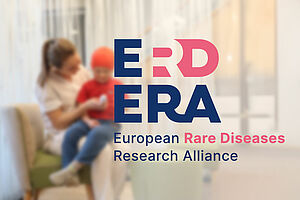The Digital Health Team at the AIT Center for Health and Bioresources is part of the European Rare Disease Alliance (ERDERA), which aims to systematically improve research into and treatment of rare diseases in Europe.
Rare diseases affect around 30 million people across Europe. This patient group is often confronted with inadequate care: Diagnoses are often made late and available therapies are limited. In addition, the lack of networking between European healthcare and research institutions makes progress in diagnosis and treatment more difficult.
Opportunities for healthcare
ERDERA brings together 178 organisations from 37 countries that are dedicated to solving these challenges. A key objective is to establish a virtual platform that will link data sources in the field of rare diseases across Europe. Karl Kreiner, AIT Digital Health Team, and Luiz Bonino da Silva Santos, University of Twente, are leading the development of the overall architecture of this platform. The platform will enable the linking of pseudonymised data sets so that information can be exchanged between institutions without revealing the identity of patients.
AIT's EUPID Services: Data protection through cryptographic procedures
Within the Virtual Platform, the AIT will provide its EUPID Services, which utilise special cryptographic procedures for ‘Privacy-Preserving Record Linkage’. This technology makes it possible to link patient data securely and in compliance with data protection regulations. Karl Kreiner emphasises the relevance of this solution: ‘The ability to link data records across Europe without disclosing the identity of patients creates the basis for truly cross-border research. Data protection remains the top priority.’
A new chapter in health research
AIT's participation in the Virtual Platform will set a new standard for European research into rare diseases in terms of data accessibility and data protection. In the long term, the project will contribute to the development of innovative diagnostic and treatment approaches and could mean a significant improvement in the care situation for millions of patients.
Further information: https://erdera.org/



